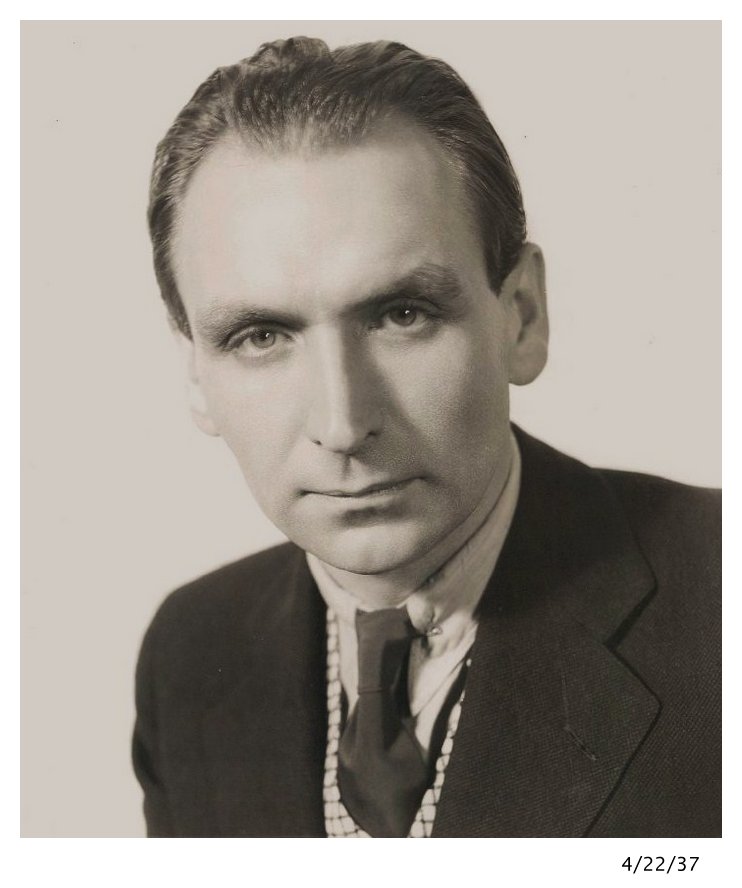

|
Werner Janssen, 91; Led Philharmonic In New York
in 30's
By JOHN ROCKWELL Published: September 21, 1990, in The New York Times Werner Janssen, the first American-born conductor to lead the New York Philharmonic and later an active film composer and champion of contemporary music on the West Coast, died on Wednesday at the Stony Brook (L.I.) University Hospital. He was 91 years old. Mr. Janssen was born in New York, and attended Dartmouth College and the New England Conservatory of Music. He studied conducting in Europe with Felix Weingartner and Hermann Scherchen and composition with Ottorino Respighi. In the 1920's, he also played piano in New York cabarets and contributed numbers for the Ziegfeld Follies and other revues. His international career blossomed when he conducted an all-Sibelius concert in Finland in 1934, winning glowing praise from the composer. He made many appearances as guest conductor in Europe and the United States, and later in 1934 was invited to lead the New York Philharmonic. From 1937 to 1939, Mr. Janssen was music director of the Baltimore Symphony, but thereafter he shifted his base to Los Angeles. He composed scores for many films, including ''Blockade'' and ''The General Dies at Dawn.'' He led his own Janssen Symphony in Los Angeles from 1940 to 1952, and was chief conductor of the Utah Symphony, the Portland (Ore.) Symphony and the San Diego Philharmonic. He also made numerous recordings of venturesome 20th-century repertory. He is survived by his wife, Christina Heintzmann Janssen of Stony Brook; a son, Werner Janssen Jr. of New York; two daughters, Alice Krelle of Lake Tahoe, Nev., and Jennifer Janssen of Stony Brook; two sisters, Dorothy Szlapka and Alice Knipe, both of New York; four grandchildren, and eight great-grandchildren. 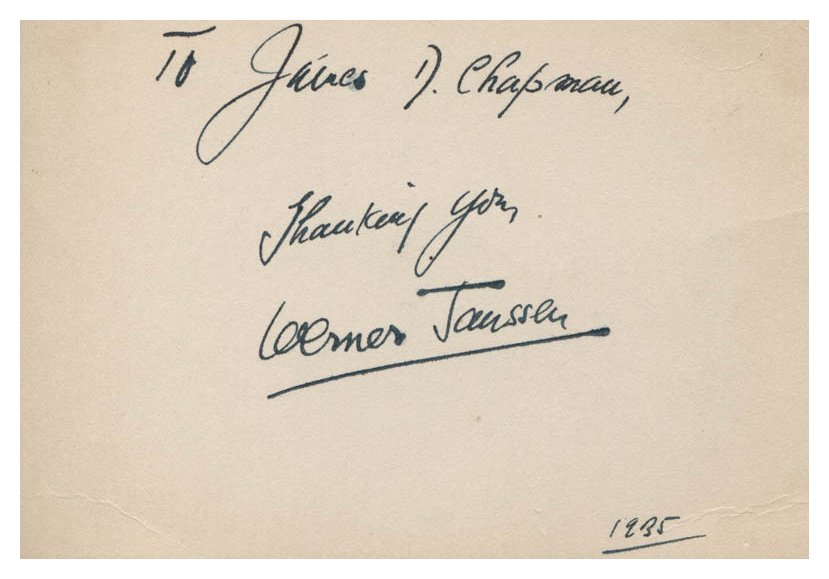
|
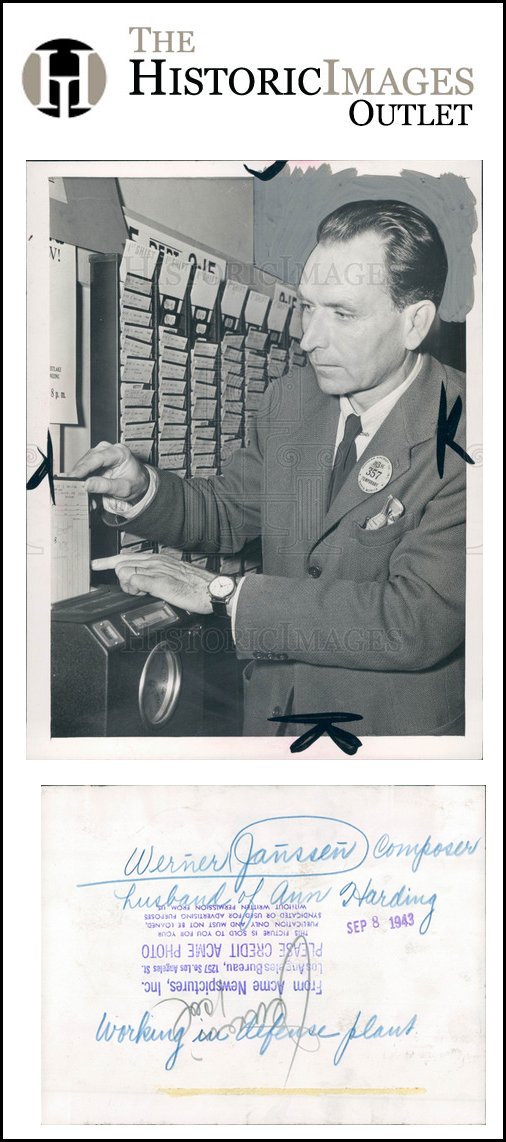 At first, Janssen was somewhat reluctant to accept my request for a conversation,
but near the end of July of 1987 he did allow me to call and, as you will
see, things went very well . . . . . . . . .
At first, Janssen was somewhat reluctant to accept my request for a conversation,
but near the end of July of 1987 he did allow me to call and, as you will
see, things went very well . . . . . . . . .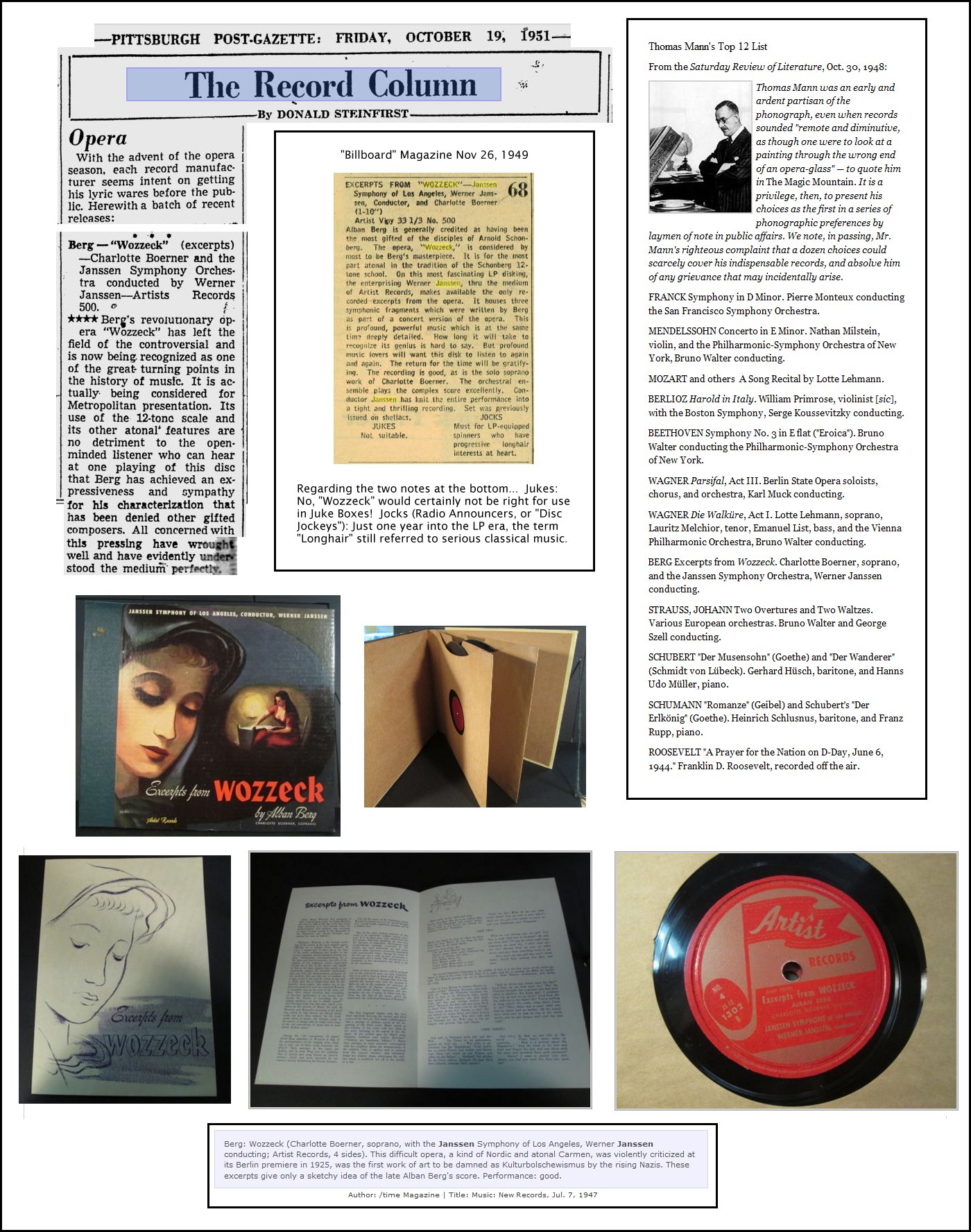
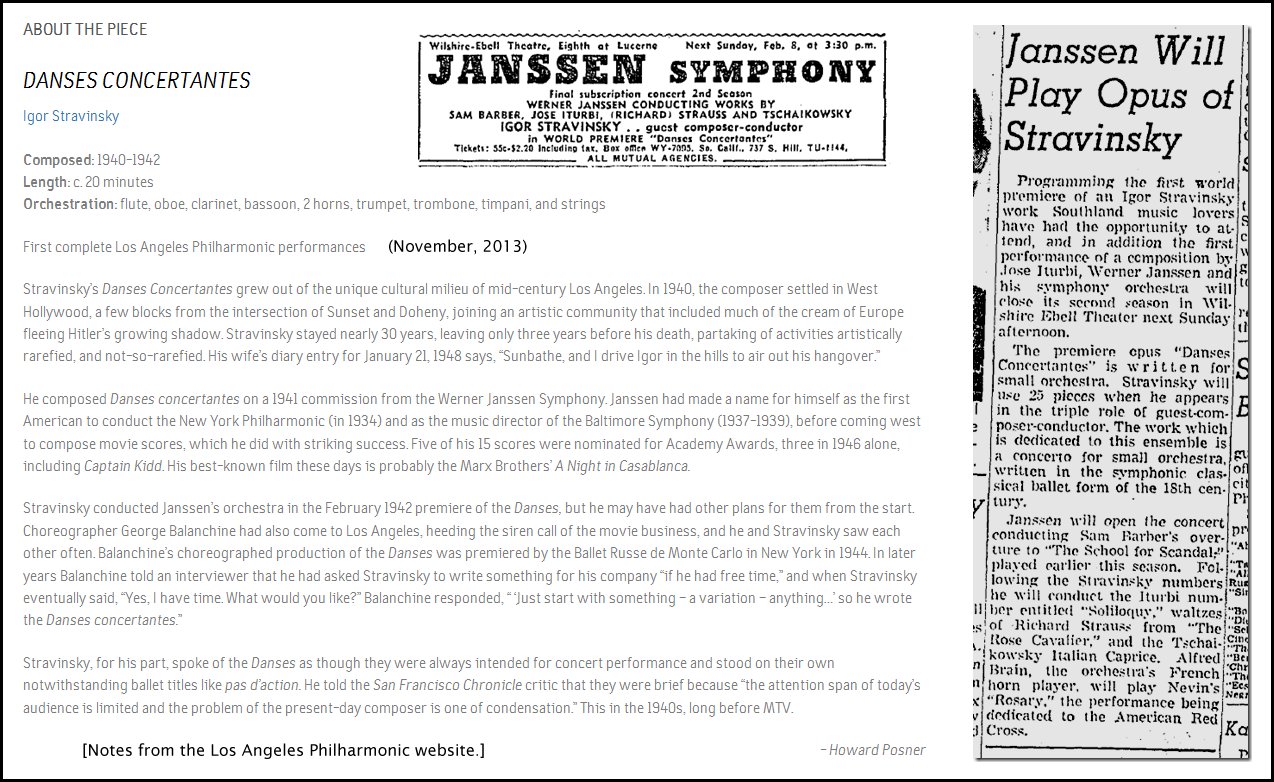
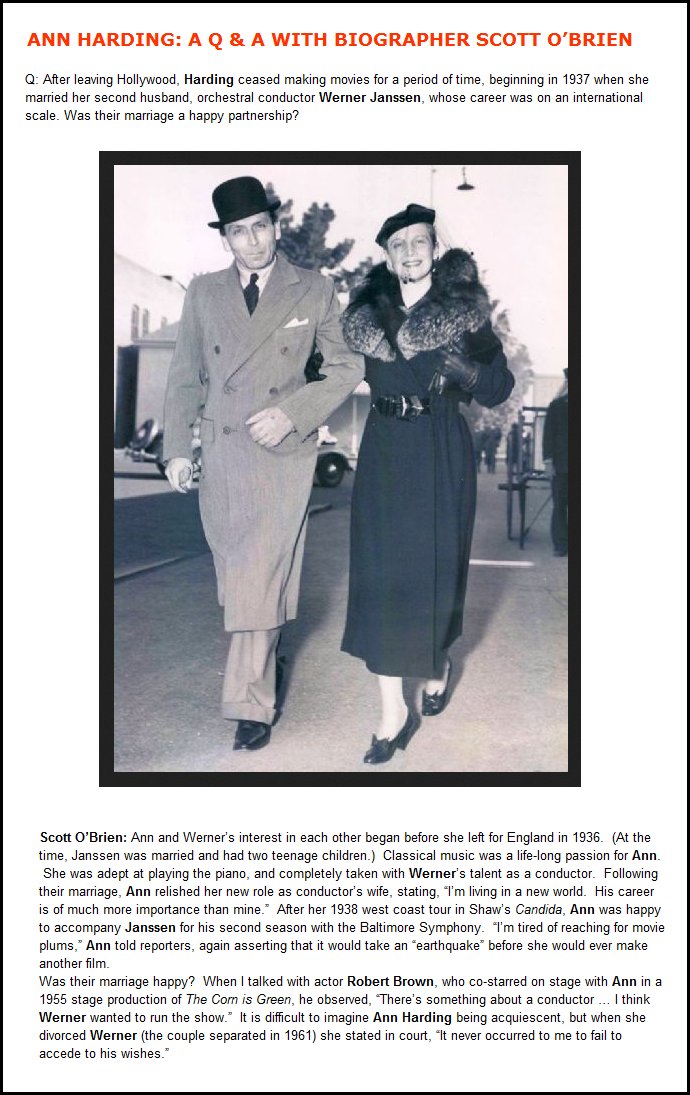 BD: Real music?
BD: Real music?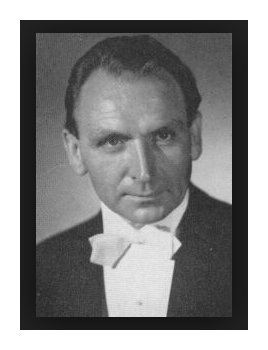 BD: I want to ask you about your compositions
now. You are still composing, yes?
BD: I want to ask you about your compositions
now. You are still composing, yes?When Jacques
Gordon died on September 15, 1948, the musical world lost one of its most
brilliant violinists and the Eastman School of Music one of its most beloved
teachers. For years the solo appearances of Mr. Gordon were marked by tremendous
ovations in response to his masterful interpretations of violin literature.
For years also the famous Gordon String Quartet toured the country, giving
concerts of the highest caliber and bringing chamber music to cities both
large and small. Mr. Gordon's pupils at the American Conservatory of Music
in Chicago, the Eastman School of Music in Rochester, and the summer music
school at Music Mountain in Falls Village were outstanding young artists
and successful teachers.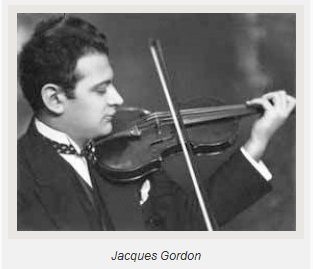 Jacques Gordon was born in Odessa, Russia, in 1897. At the age of five
he began the study of the violin, and by the time he was nine he was ready
to appear in concerts as a child prodigy. At sixteen he made a continental
tour of Europe, receiving many awards, among which was a gold medal given
him by the Czar in 1913. He made his first tour of the United States and
Canada during the 1914-15 season. Three years later Elizabeth Sprague Coolidge
chose him to lead the Berkshire String Quartet, for in the meantime he had
studied with Franz Kneisel, famed quartet leader, and had not only become
acquainted with the standard repertoire but had become an enthusiastic chamber-music
player as well. In 1921 he was appointed Concertmaster of the Chicago Symphony
Orchestra under Frederick Stock; being twenty-four at the time, he was the
youngest concertmaster in the history of that orchestra. His residence in
Chicago lasted for nine years, during which he was head of the violin department
at the American Conservatory of Music.
Jacques Gordon was born in Odessa, Russia, in 1897. At the age of five
he began the study of the violin, and by the time he was nine he was ready
to appear in concerts as a child prodigy. At sixteen he made a continental
tour of Europe, receiving many awards, among which was a gold medal given
him by the Czar in 1913. He made his first tour of the United States and
Canada during the 1914-15 season. Three years later Elizabeth Sprague Coolidge
chose him to lead the Berkshire String Quartet, for in the meantime he had
studied with Franz Kneisel, famed quartet leader, and had not only become
acquainted with the standard repertoire but had become an enthusiastic chamber-music
player as well. In 1921 he was appointed Concertmaster of the Chicago Symphony
Orchestra under Frederick Stock; being twenty-four at the time, he was the
youngest concertmaster in the history of that orchestra. His residence in
Chicago lasted for nine years, during which he was head of the violin department
at the American Conservatory of Music.The first Gordon String Quartet was founded in Chicago in 1921. By 1930 the demand for quartet appearances had become so great that he resigned from his position in the orchestra in order to devote his entire time to the ensemble and to his own solo playing. In the larger cities where the quartet performed, the members were greeted by enthusiasts whose interest already lay in the standard works of chamber music and in the newer compositions being written for that medium. In the smaller cities where chamber music was practically unknown the quartet did much to introduce this literature. In 1930 Mr. Gordon established summer residence in Falls Village, Connecticut. The Gordon Musical Association, established that same year, maintained a summer school of music called Music Mountain, where many students gathered to study repertory and chamber music and to hear performances by the Gordon String Quartet. Jacques Gordon came to the Eastman School of Music during the academic year 1941-42, when he substituted for Gustave Tinlot, upon whose death he was appointed head of the violin faculty. The Gordon String Quartet subsequently became the quartet-in-residence at the school, where they played regularly on chamber music concert series, on radio programs, and for recordings. -- Ruth Watanabe
|
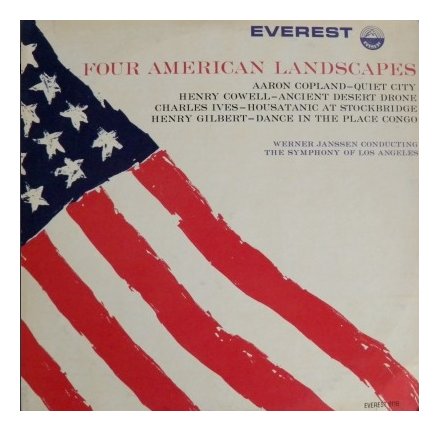 BD: In the music for films you’ve incorporated
some jazz into the scores.
BD: In the music for films you’ve incorporated
some jazz into the scores. 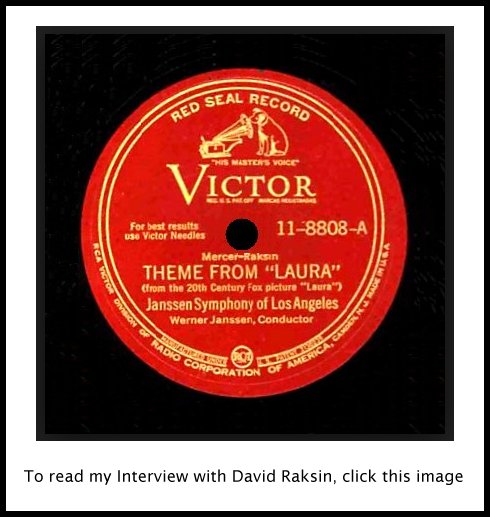 BD: What did you learn from working with Ottorino
Respighi?
BD: What did you learn from working with Ottorino
Respighi?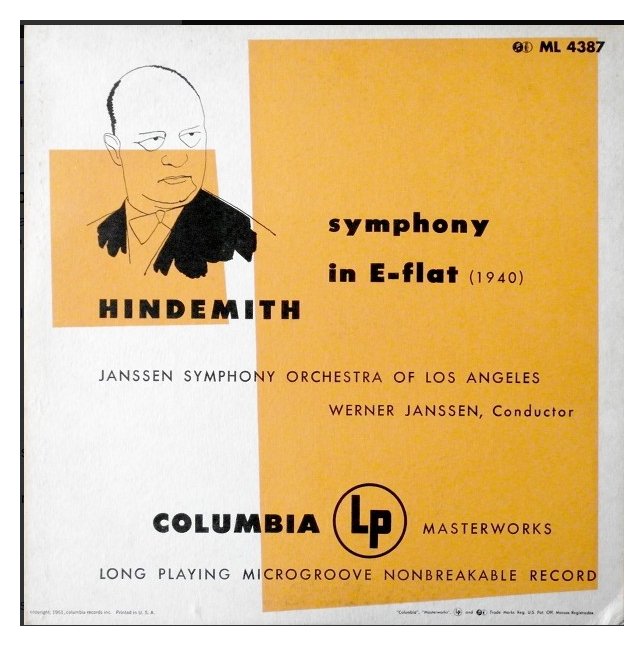 WJ: The ultimate purpose of music is to save civilization.
Curiously enough, it can save civilization because of it being
— to use a very corny phrase we’ve heard
a thousand times — the universal language. I
was in the war, and I remember one time there were three of us in a trench.
There was a Frenchman, an Italian-speaking boy, and myself. I speak
French and I speak Italian because I studied in Europe. We were in
a terrible spot, and they couldn’t commute because they didn’t know English.
Somebody had a record and an old machine, and he played the second movement
of the Brahms Second Symphony.
He had these three people there and we didn’t have to talk. We never
talked again until the next shell. That’s one way of communication.
I would love to work for a dollar a year, truthfully, survive on it, and
help young people with their music.
WJ: The ultimate purpose of music is to save civilization.
Curiously enough, it can save civilization because of it being
— to use a very corny phrase we’ve heard
a thousand times — the universal language. I
was in the war, and I remember one time there were three of us in a trench.
There was a Frenchman, an Italian-speaking boy, and myself. I speak
French and I speak Italian because I studied in Europe. We were in
a terrible spot, and they couldn’t commute because they didn’t know English.
Somebody had a record and an old machine, and he played the second movement
of the Brahms Second Symphony.
He had these three people there and we didn’t have to talk. We never
talked again until the next shell. That’s one way of communication.
I would love to work for a dollar a year, truthfully, survive on it, and
help young people with their music. 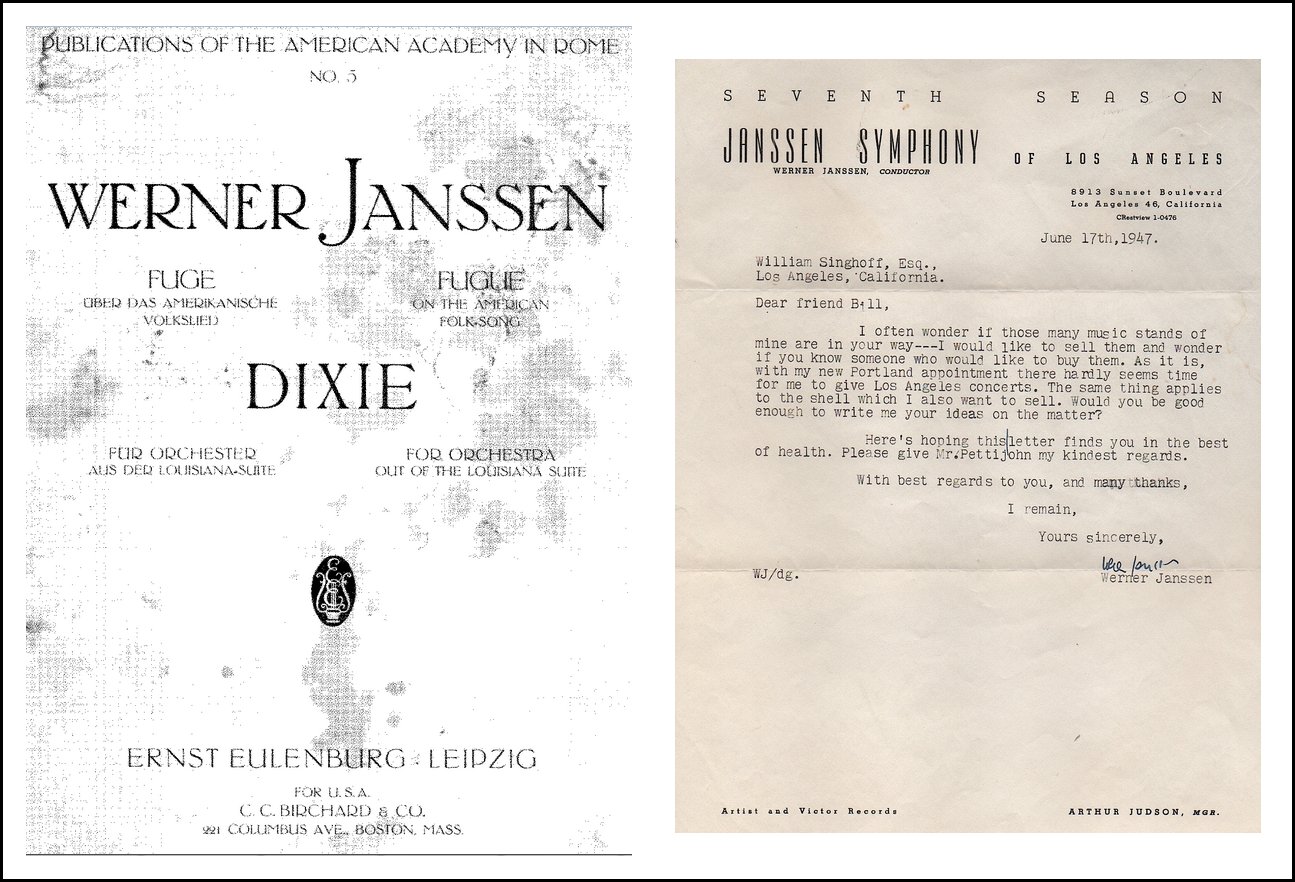
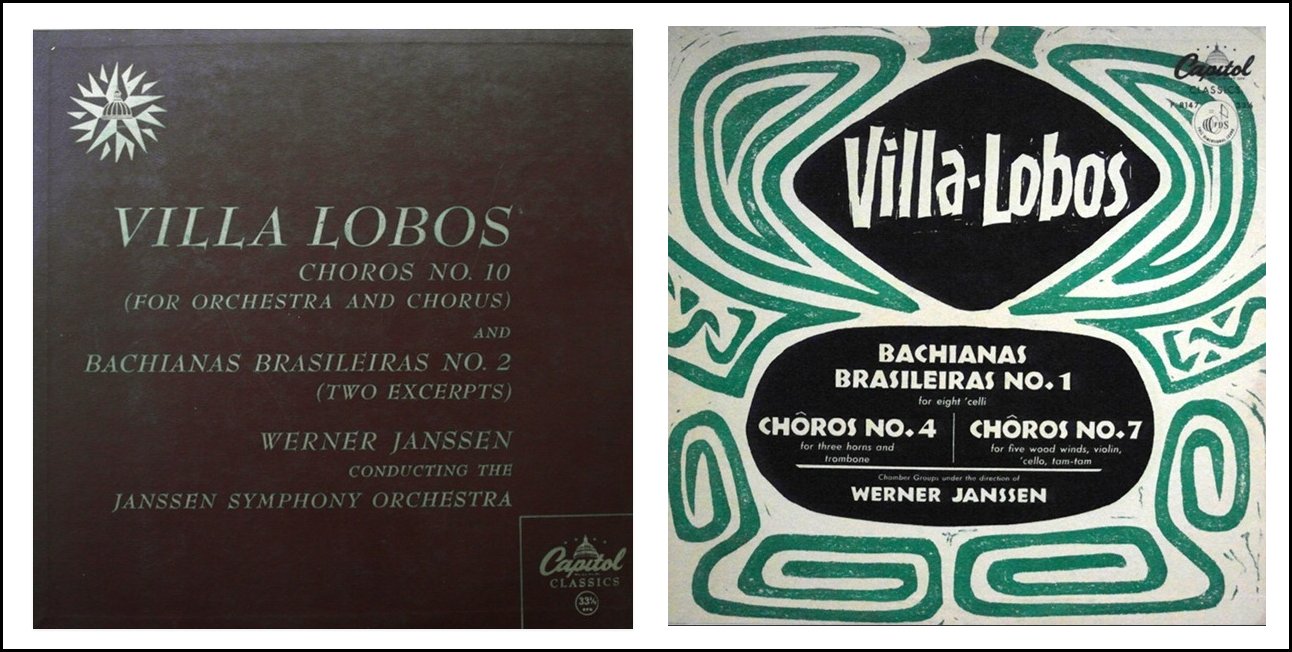
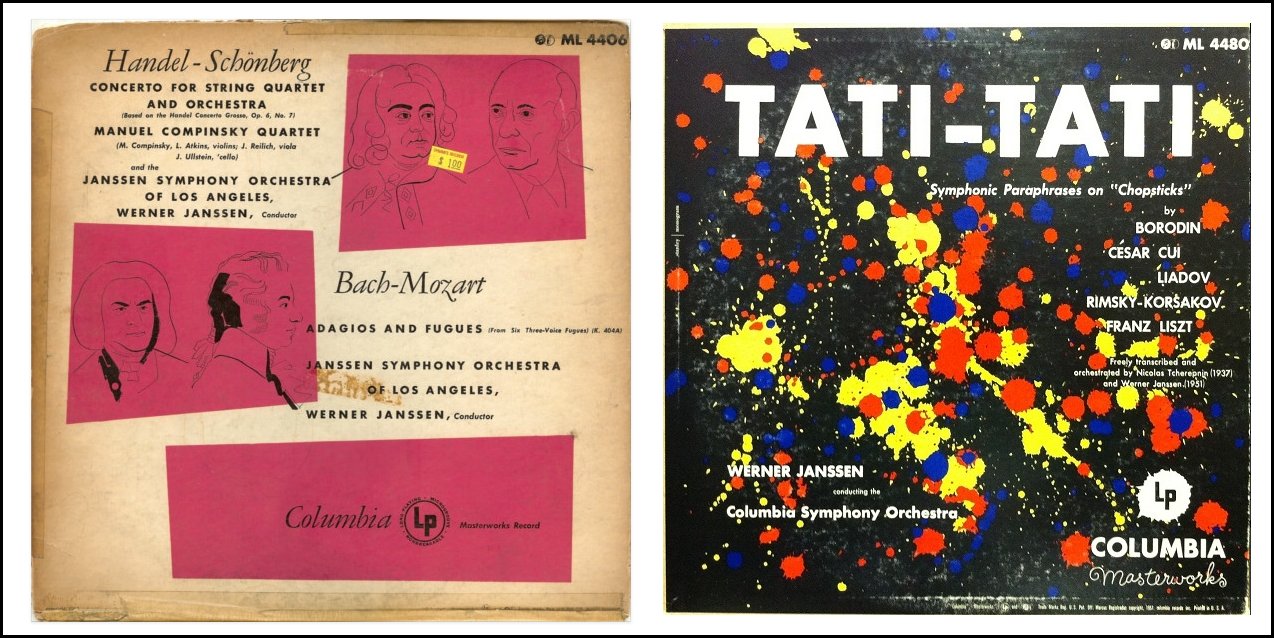
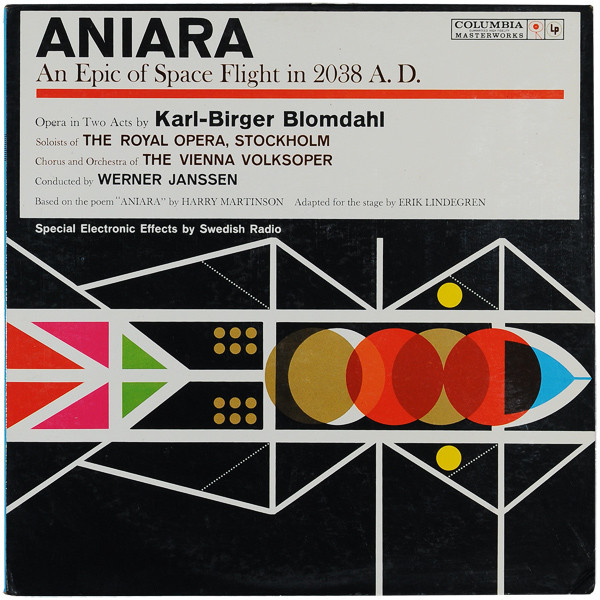
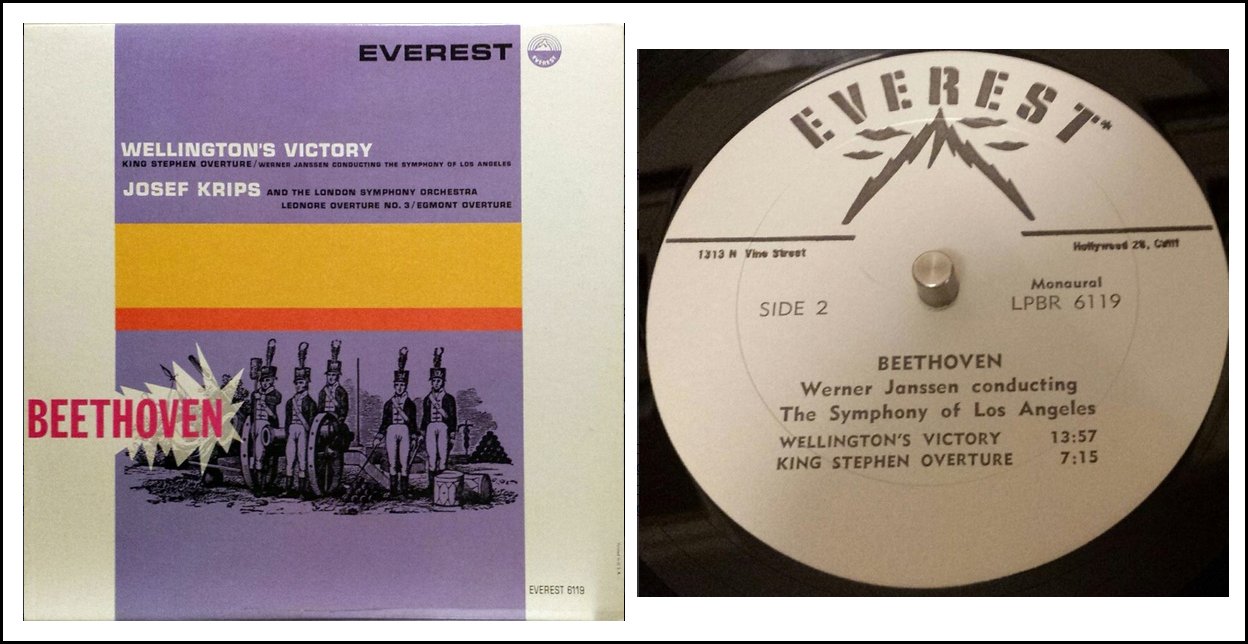
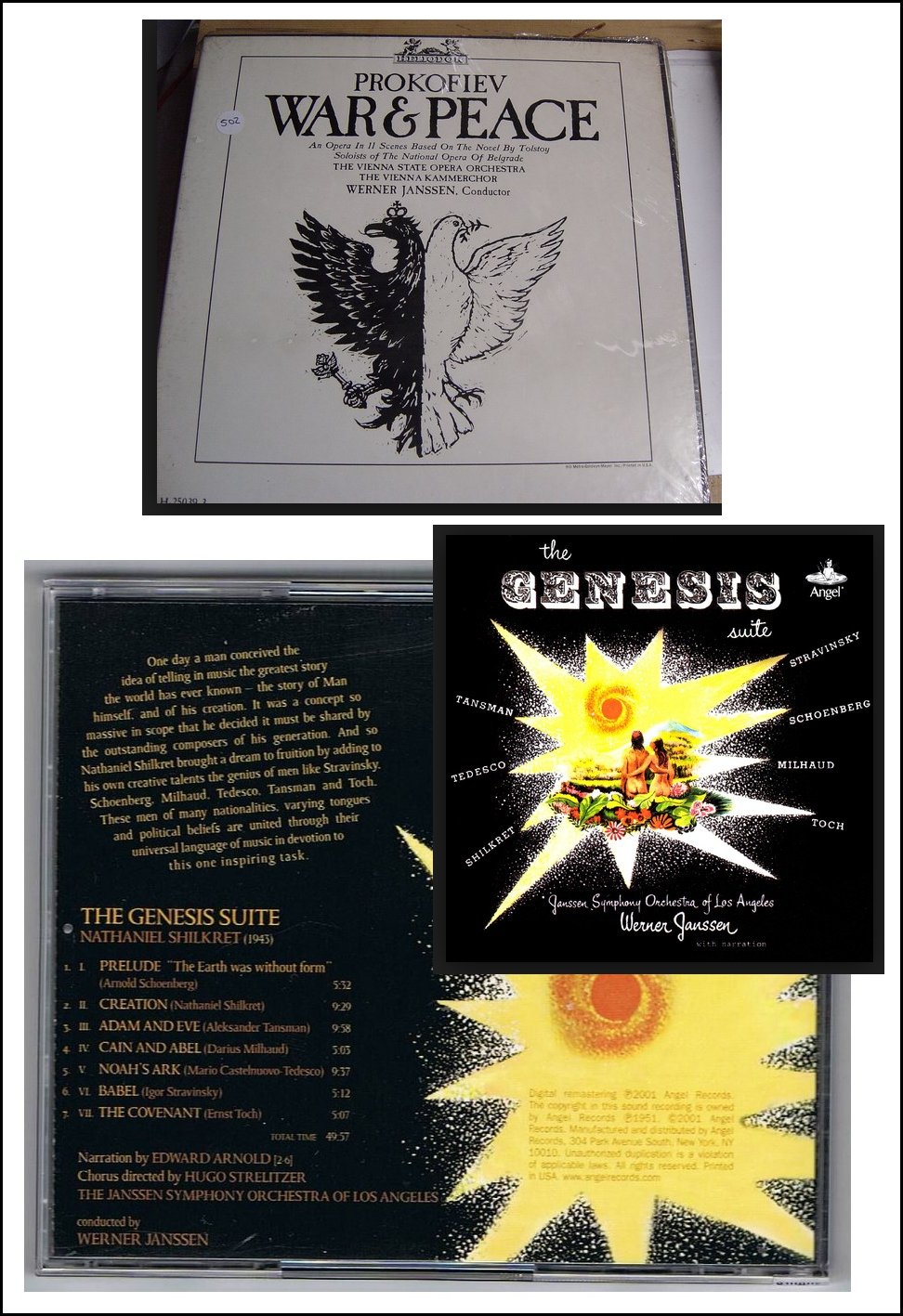
© 1987 Bruce Duffie
This conversation was recorded on the telephone on July 25, 1987. Since the sound quality of the recording was poor, I used quotations from the conversation along with recordings on WNIB several occasions through 1999. This transcription was made in 2015, and posted on this website at that time. My thanks to British soprano Una Barry for her help in preparing this website presentation.
To see a full list (with links) of interviews which have been transcribed and posted on this website, click here. To read my thoughts on editing these interviews for print, as well as a few other interesting observations, click here.
Award - winning broadcaster Bruce Duffie was with WNIB, Classical 97 in Chicago from 1975 until its final moment as a classical station in February of 2001. His interviews have also appeared in various magazines and journals since 1980, and he now continues his broadcast series on WNUR-FM, as well as on Contemporary Classical Internet Radio.
You are invited to visit his website for more information about his work, including selected transcripts of other interviews, plus a full list of his guests. He would also like to call your attention to the photos and information about his grandfather, who was a pioneer in the automotive field more than a century ago. You may also send him E-Mail with comments, questions and suggestions.